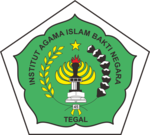Irfani Epistemology Imam Al-Ghazali's Perspective in Islamic Education
DOI:
https://doi.org/10.62490/latahzan.v16i1.402Keywords:
Irfani Epistemology, Al-Ghazali, Islamic EducationAbstract
The aim of this research is to examine Al-Ghazali's Sufism thought and its correlation to education. This type of research uses library research with data and information collection methods. This research uses a qualitative descriptive approach by explaining Al-Ghazali's thoughts regarding irfani epistemology and its correlation to education. The results of this research show that in essence Al-Ghazali's Sufism teachings have a correlation with education where these teachings lead to the teachings of Al-Haqq (Allah SWT). Irfani Al Ghazali's thoughts provide valuable contributions in the educational context by emphasizing the integration of science and religion, character formation, values education, and active learning education. His holistic thinking and orientation towards moral and spiritual values can be the basis for developing education that is centered on the formation of quality and ethical individuals.
References
Abuddin Nata. (2000). Akhlak Tasawuf. PT Raja Grafindo Persada.
Al-Ghazali. (2005). Al-Munqidz min Al-Dhalal, tahkik ‘Abdul Halim Mahmud Alih Bahasa Abdul Munip, Yogyakarta: Mitra Pustaka, 2005, hlm. 33. Mitra Pustaka.
Al-Lathif, M. G. (2020). HUJJATUL ISLAM IMAM AL-GHAZALI Kisah Hidup dan Pemikiran Sang Pembaru Islam (Vol. 69). Araska Publisher.
Alwi Shihab. (2009). Antara Tasawuf Sunni dan Falsafi. Pustaka Iman.
Arif, M. (2021). Pentingnya menciptakan pendidikan karakter dalam lingkungan keluarga. Pendais, 3(1), 1–24.
Arrazet, H. (2022). PANDANGAN ISLAM TERHADAP PERAN FILSAFAT DALAM PEMBENTUKAN ILMU DAN ETIKA MENURUT PEMIKIRAN AL-GHAZALI.
Aziz, A. A. (2022). MEMBENTUK AKHLAK KARIMAH MELALUI METODE IBRAH MAU’IDZAH. CV. AZKA PUSTAKA.
Bakar, A., Nazir, M., & Purnama, R. D. B. (2023). Membumikan Konsep Integrasi Pendidikan Islam Dengan Sains Di Lembaga Pendidikan Islam. Jurnal Adzkiya, 7(1), 82–92.
Firman, F., & Abdurrahman, A. (2023). Islamisasi Ilmu Pengetahuan dan Pengaruhnya Terhadap Pendidikan Islam. Al-Gazali Journal of Islamic Education, 2(02), 121–135.
Ghazali, A. M. (2013). Corak Tasawuf Al-Ghazali Dan Relevansinya Dalam Konteks Sekarang. Al-Tahrir: Jurnal Pemikiran Islam, 13(1), 61–85.
Halik, A. (2020). Ilmu pendidikan islam: Perspektif ontologi, epistemologi, aksiologi. Istiqra: Jurnal Pendidikan Dan Pemikiran Islam, 7(2).
Hamdani, M. F., & Zainal, E. H. (2019). Kelompok Tarekat Dan Politik (Studi Preferensi Politik Kelompok-Kelompok Tarekat Di Sumut Dalam Pilgubsu 2018).
Imamsyah, M., Qurbani, I. D., & Susmayanti, R. (2023). Reformulation Requirements for the Nomination of People’s Representative Council in Law Number 7 of 2017 Concerning General Elections in a Progressive Legal Perspective and the Imamah Al-Ghazali Concept. International Journal of Multicultural and Multireligious Understanding, 10(1), 391–395.
Kurniawati, I., Silvya, W., & Sari, H. P. (2023). Pemikiran Al-Ghazali Tentang Filsafat Pendidikan Islam Dan Pembentukan Karakter: Relevansinya Untuk Masyarakat. Tawshiyah: Jurnal Sosial Keagaman Dan Pendidikan Islam, 18(2), 1–15.
Makki, M. (2019). Epistemologi Pendidikan Islam: Memutus Dominasi Barat terhadap Pendidikan Islam. Al-Musannif, 1(2), 110–124.
Mehdi Hairi Yazdi. (1994). Ilmu Hudhuri, terj. Ahsin Muhammad. Mizan.
Mulyadhi Kartanegara. (2003). Menyibak Tirai Kejahilan, Pengantar Epistemologi Islam. Mizan.
Mulyadi Kartanegara. (2006). Menyelami Lubuk Tasawuf. Erlangga.
Muzammil, A., Harun, S., & Alfarisi, A. H. (2022). EPISTEMOLOGI BAYANI, IRFANI DAN BURHANI SEBAGAI DASAR PENGEMBANGAN ILMU PENGETAHUAN DALAM ISLAM: Epistemologi. Al-Irfan: Journal of Arabic Literature and Islamic Studies, 5(2), 284–302.
Naja, A. D. (2022). PENANAMAN PENDIDIKAN KARAKTER MELALUI PEMBIASAAN RELIGIUS DI SMK TERPADU KHOIROT KANDAT KEDIRI. JURNAL KOULUTUS, 5(1), 23–40.
Nata, A. (2018). Pendidikan Islam di era milenial. Conciencia, 18(1), 10–28.
Negara, M. A. P. (2022). Analisis Kritis Filosofis Epistemologi Irfani dalam Tradisi Spritualisme Islam. 8, 131–141.
Qomar, M. (2005). Epistemologi pendidikan Islam: Dari metode rasional hingga metode kritik. Erlangga.
Rachman, E. A., Humaeroh, D., Sari, D. Y., & Mulyanto, A. (2023). Kepemimpinan Visioner Dalam Pendidikan Karakter. Jurnal Educatio FKIP UNMA, 9(2), 1024–1033.
Rahman, A., & Halim, A. (2019). Kajian Tasawuf Di Pesantren (Kajian Terhadap Pemikiran Tasawuf Al-Ghazali). Jurnal Pemikiran Dan Ilmu Keislaman, 2(1), 43–58.
Ridlo, M. (2023). NALAR KEBENARAN DALAM FILSAFAT ISLAM. RADIX: Jurnal Filsafat Dan Agama, 1(01), 27–38.
Rivay Siregar. (2002). Tasawuf Dari Sufisme Klasik Ke Neo-Sufisme, Jakarta: PT Raja Grafindo Persada, 2002, hlm. 112. PT Raja Grafindo Persada.
Robbani, A. S., & Haqqy, A. M. (2021). Types of Bayani, Irfani, and Burhani Reasoning and Their Relevance to Islamic Education. Islam in World Perspectives, 1(1), 38–46.
Rokhmah, D. (2021). Ilmu dalam tinjauan filsafat: Ontologi, epistemologi, dan aksiologi. CENDEKIA: Jurnal Studi Keislaman, 7(2), 172–186.
Saputra, T., & Wahid, A. (2023). Al-Ghazali Dan Pemikirannya Tentang Pendidikan Tasawuf. ILJ: Islamic Learning Journal, 1(4), 935–954.
Subagiya, B. (2023). Eksplorasi penelitian Pendidikan Agama Islam melalui kajian literatur: Pemahaman konseptual dan aplikasi praktis. Ta’dibuna: Jurnal Pendidikan Islam, 12(3), 304–318.
Syafril, S. (2017). PEMIKIRAN SUFISTIK Mengenal Biografi Intelektual Imam Al-Ghazali. SYAHADAH: Jurnal Ilmu al-Qur’an Dan Keislaman, 5(2).
Downloads
Published
How to Cite
Issue
Section
License
Copyright (c) 2024 La-Tahzan: Jurnal Pendidikan Islam

This work is licensed under a Creative Commons Attribution-ShareAlike 4.0 International License.
The copyright of the received article shall be assigned to the journal as the publisher of the journal. The intended copyright includes the right to publish the article in various forms (including reprints). The journal maintains the publishing rights to the published articles.
In line with the license, authors and any users (readers and other researchers) are allowed to share and adapt the material. In addition, the material must be given appropriate credit, provided with a link to the license, and indicated if changes were made. If authors remix, transform, or build upon the material, authors must distribute their contributions under the same license as the original.
















